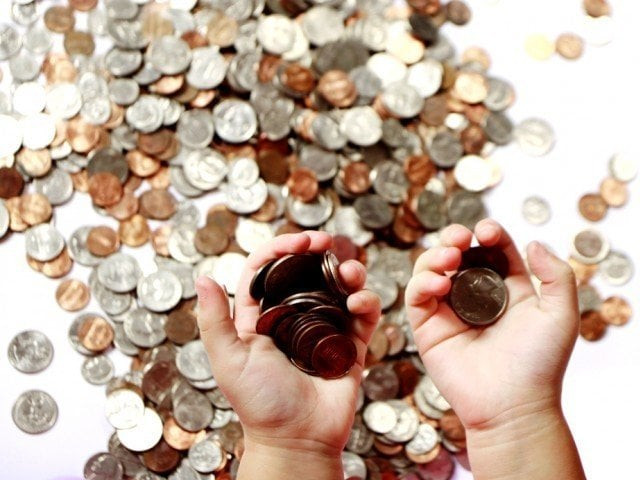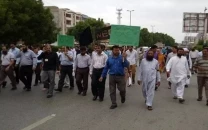Blissfully unaware: 'Pakistanis donate around Rs554 billion annually'
Only 2% of the country's residents are aware their charity donation may be used to fund militant activities

According to the Edhi Foundation Spokesperson Anwar Kazmi, collections have increased, but not for the foundation. PHOTO: FILE
Pakistanis donate around Rs554 billion annually, according to a study by research-based advocacy and consultancy group Individualland. Out of this, 72% is donated during Ramazan and Eid holidays and Karachi contributes the most, the study found.
When in power, the MQM bagged around 60% to 70% of the whole Ramazan collection through donations made to its sister organisation, the Khidmat-e-Khalq Foundation, according to a senior police officer.
The money inflow, however, broke after the authorities accused the party of being involved in financing terrorism and creating unrest in the city. After the party was barred from collecting charity, the money channelled its way to other organisations.
Collecting Fitra, Zakat: An open field for charity organisations
"This year, Saylani Welfare has taken the lead in collection of donations," said a member of the organisation, adding that since the break of the MQM's influence over the city, donations have soared to new heights.
Contrary to this, donations to the Edhi Foundation have been declining since the demise of the organisation's founder, Abdul Sattar Edhi. "We collected less this year as compared to last year," commented Anwar Kazmi, the spokesperson for the foundation.
"There have been no reports of forced collections, which surfaced in the past. In most parts of Karachi, the MQM was accused of forcing people to pay them fitra and zakat. The party, however, doesn't have the same militant strength anymore," Kazmi said.
He said that the welfare market has seen a rise after the MQM's monopoly was broken and new organisations have made an entry, increasing the competition. "Collections have increased, but not for us," he lamented.
Banned outfits start collecting 'jihad' donations
Since the MQM split into two factions of Pakistan and London, they have been operating differently. Aminul Haq, the spokesperson of the Farooq Sattar-led MQM-Pakistan said his party did not collect or receive any kind of donations this year.
On the other hand, Wasay Jalil, the spokesperson of the pro-Altaf Hussain MQM-London, interestingly claimed that his party received a 'good' amount of zakat and fitra both overseas and locally.
The virtual ban on the MQM collecting donations in the city has not only benefitted charity organisations, but also religious organisations, including those advocating and taking part in militant operations across the country, as they are now able to take the MQM's place.
According to Individualland, only 2% of the country's people are aware that their charity donation may be used to fund militant activities and that 69% of the charity donated in cash goes to mosques and madrassas.
"Militant organisations ask for money in the name of developing a mosque or funding the education of children studying in seminaries in some far-flung area of the country," explained a Counter-Terrorism Department official.
"Usually, it is difficult to trace the money trail since most of the donations are in cash. However, with the help of intelligence and law enforcement agencies we have been able to thwart many of these terror-financing schemes," he said.



















COMMENTS
Comments are moderated and generally will be posted if they are on-topic and not abusive.
For more information, please see our Comments FAQ